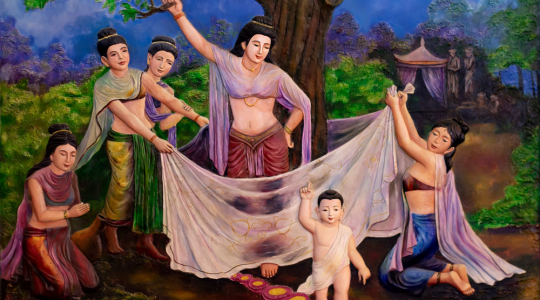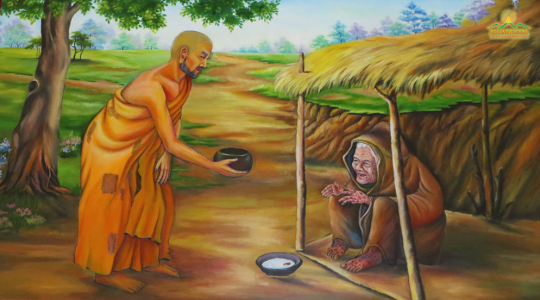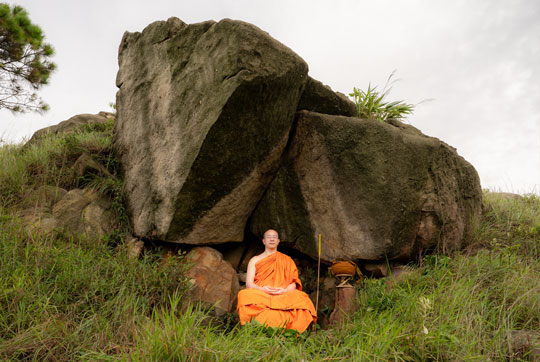What is Nirvana? Who can attain Nirvana?
Table of contents [Hide]
It is believed that Nirvana is merely a realm created by human imagination, or Nirvana is a faraway abode or country.
So what exactly is Nirvana? Is it real? And why is it said that the purpose of practicing Buddha Dharma is to attain Nirvana?
Find out in the teachings of Thay Thich Truc Thai Minh in the following article.
What is Nirvana?
In Buddhism, Nirvana is the state that exists within our own mind. It is not an abode with a particular space or location, but rather a state of mind that is free from all defilements, false views, greed, anger, and illusion. Nirvana carries the same meaning as liberation from suffering and the cycle of birth and death.

Nirvana is a state of mind in which all defilements are extinguished
Categories of Nirvana
There are four categories of Nirvana.
1. Nirvana with remainder
This is the state in which the Arahants attain Nirvana while still alive in their physical bodies.
2. Nirvana without remainder
This is the state of Arhahants who attain Nirvana upon the death of their physical bodies.
3. Natural Nirvana
Every being possesses the nature of Nirvana; however, their delusion and craving obscure them from perceiving it.
Just as a glass of water turns cloudy when mixed with mud and soil, it becomes clear once sediments settle. Likewise, Nirvana exists within our minds, yet we do not recognize it.
4. Unlocated Nirvana
This is the state of Bodhisattvas. Despite having reached Nirvana, they continue to reincarnate in the six realms to save sentient beings. Therefore, it is referred to as “unlocated”. They have no attachment, no abidance, and no clinging to any particular abode but are present everywhere to save sentient beings.
So who can attain Nirvana?
In Milinda-panha's question 47 titled “Who can attain Nirvana?”, King Milinda asked Most Venerable Nagasena:
- Do all practitioners win Nirvana?
Nagasena answered:
- Not really. Only those practice the true Dharma, realize what wise men realized, comprehend what wisemen comprehended, forsake what wisemen forsook, conduct what wisemen conducted, and see through what wisemen saw through do they win Nirvana.”
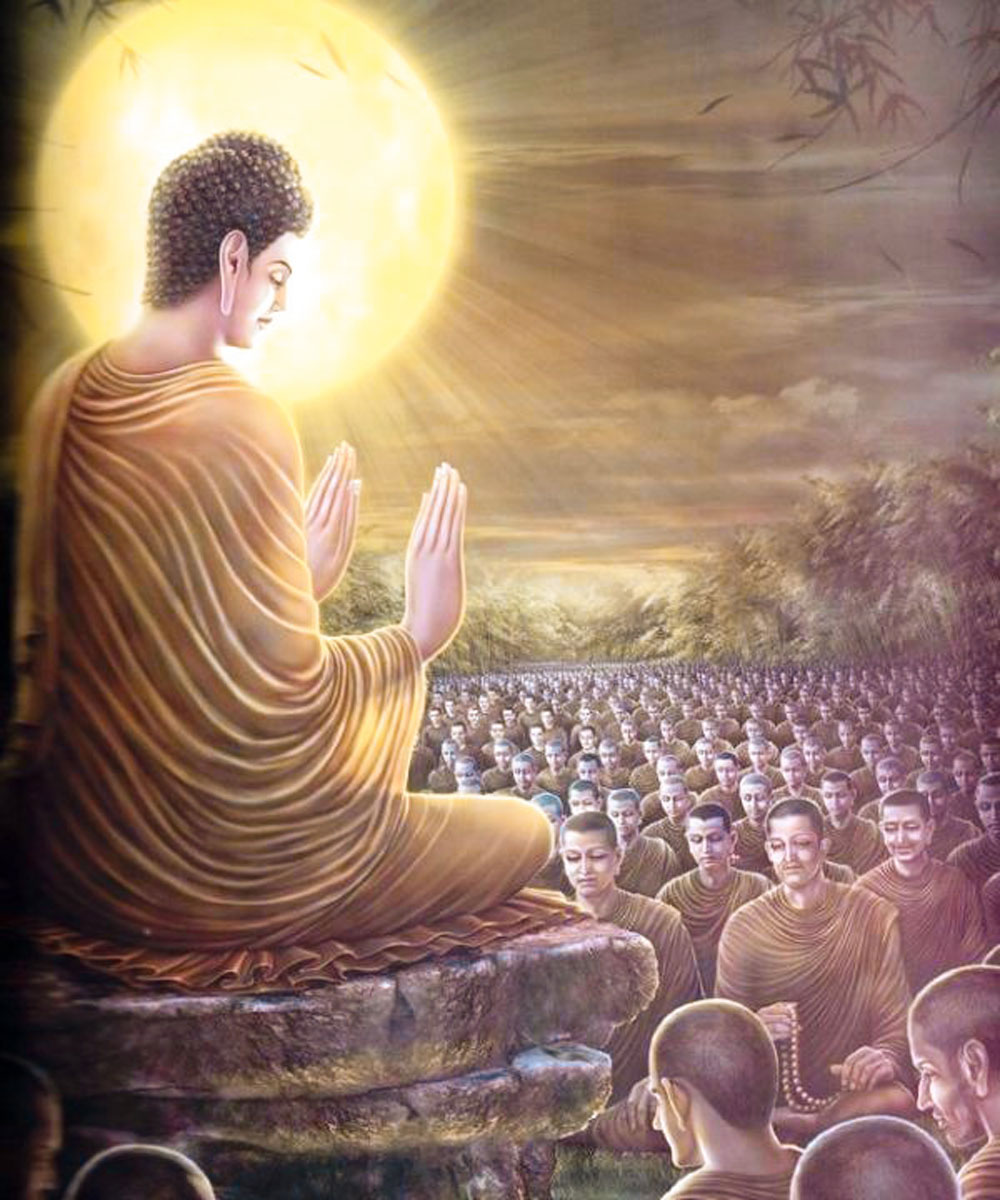
In the Buddha's time, not only he but also many of his holy disciples attained Nirvana.
Therefore, according to the Buddhist doctrine, regardless of whether one is male or female, rich or poor, noble or ignoble, of high or low class, those who practice the true Dharma will attain Nirvana.
Similar to cooking rice, it does not matter if the cook is white, black, or yellow, one simply needs to cook it properly and follow the process to obtain delicious rice.
In Buddhism, there are numerous examples of individuals who attained Nirvana through diligent practice of the Dharma. One such person is Upali, one of the ten major disciples of the Buddha. He was born into the Sudra caste, the lowest class in the ancient Indian caste system. Prior to entering monkhood, he worked as a dung collector and a hairdresser. Later, he followed the Buddha to become a monk and diligently practiced the Buddha's teachings. As a result, he achieved Arahantship and attained Nirvana.
Buddhist history recounts a story about Mahaprajapati Gotami, the sister of Queen Maya and foster mother of the Buddha. As many princes of the Shakyamuni lineage took refuge in the Buddha and became monks, Mahaprajapati Gotami, with her virtuous qualities and blessings, visited the Buddha and expressed her desire to join the Sangha. Even though her request was declined, she did not give up. She gathered more than 500 women from the Shakyamuni lineage who shared the same aspiration to request ordination from the Buddha.
At that time, Ananda asked the Buddha:
- If a woman leaves home and lives in accordance with the Buddha's Dharma and rules, is it possible for her to achieve the noble holy fruition?
- Ananda, yes, they can.
Afterwards, Mahaprajapati Gotami along with 500 women were ordained by the Buddha. They diligently practiced the Dharma and together achieved Arahantship, entering Nirvana.
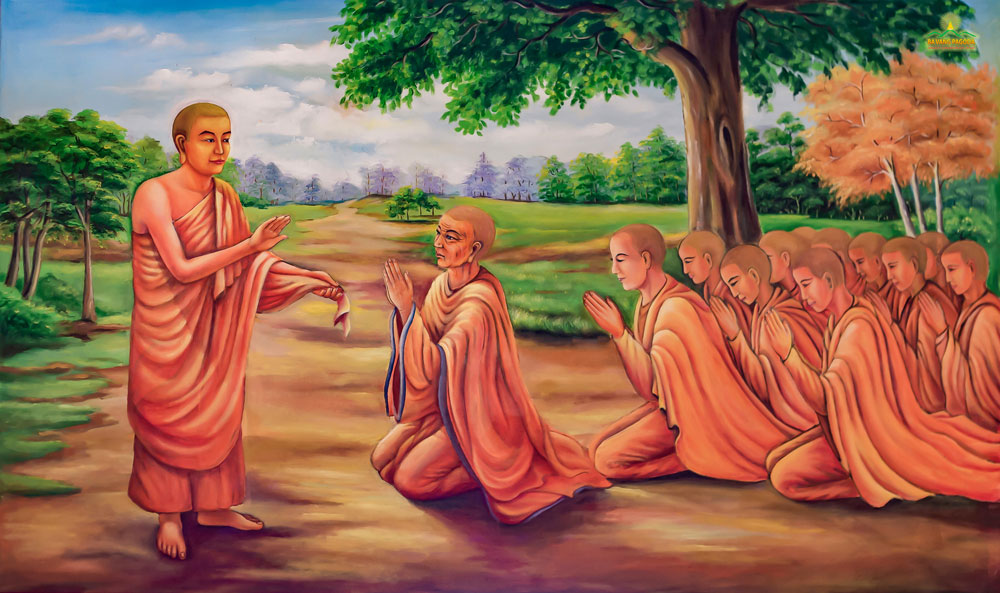
Mahaprajapati Gotami and 500 women met Ananda to seek ordination from the Buddha.
Therefore, Nirvana is not a distant concept but a reality within the mind of everyone. If we all long for the end of sufferings, happiness, and inner peace, we must attain Nirvana. The Buddhas, Bodhisattvas, and Saints and sages in the ten directions have attained Nirvana.
Thus, those who aspire to experience Nirvana should diligently cultivate discipline, concentration, and wisdom. These threefold trainings serve as the method to help us attain and enter Nirvana. We should understand that Buddha is ourselves and within our own mind. By training our minds with proper methods, we can transform ourselves into Buddhas.







